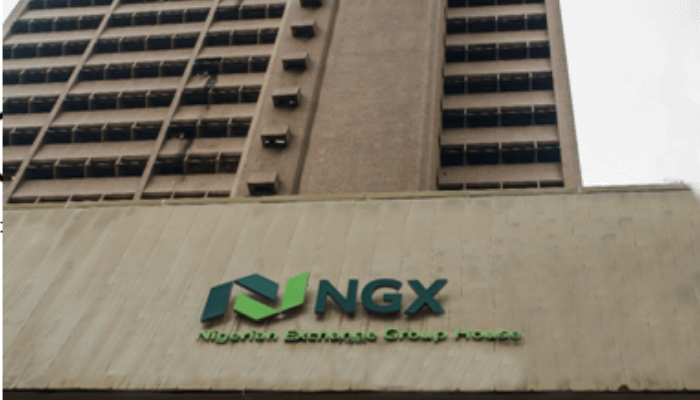Nigeria’s capital market has posted a remarkable turnaround under President Bola Tinubu’s reform agenda, with the volume and value of transactions nearly tripling in just two years, according to the Chairman of the Nigerian Exchange Group (NGX), Umaru Kwairanga.
Speaking during a diplomatic visit to Brazil, Kwairanga credited Tinubu’s wide-ranging interventions—particularly in the oil and gas sector, foreign exchange policy, and tax administration—for restoring stability and investor confidence in the financial markets. He described the surge in activity as a direct outcome of bold reforms that have positively transformed both the economy and the capital market.

Building on his remarks, analysts point to compelling numbers that underscore the scale of the market’s recovery. Data shows that since Tinubu assumed office in May 2023, the NGX All-Share Index has more than doubled, rising from 55,769.28 points to around 131,000 points—a gain of 136 percent. Market capitalization has soared from approximately ₦30 trillion to over ₦75 trillion during the same period, reflecting a dramatic surge in investor participation and valuation.
Further highlighting foreign investor confidence, the Central Bank of Nigeria’s foreign exchange reforms have paid dividends. Foreign investor participation in the stock market increased by 107.5 percent in 2024, reaching a record ₦852.03 billion. Total market transactions—domestic and foreign—jumped 56.1 percent, from ₦3.58 trillion in 2023 to ₦5.59 trillion.
The momentum extended into 2025. In the first four months, total transactions surged to ₦2.7 trillion, up 43.3 percent from ₦1.89 trillion in the same period the previous year. Domestic investors continued to dominate, while foreign portfolio investments also rose sharply by more than 162 percent.
The broader market metrics likewise reflect sustained growth. As of mid-2025, NGX’s market capitalization climbed 16 percent to ₦126.73 trillion within six months, buoyed by equity gains—from ₦62.76 trillion to ₦75.95 trillion. NGX also mobilized over ₦4.63 trillion in capital for infrastructure and business development via both corporate and sovereign instruments.
The policy foundations for this upswing were further reinforced with the enactment of the Investment and Securities Act (ISA) 2025. The Securities and Exchange Commission (SEC) expects this legislation to elevate Nigeria’s capital market to a ₦300 trillion valuation, through improved regulatory clarity, enhanced investor protection, and expanded market access.
President Tinubu personally acknowledged the market’s revival during meetings with NGX and SEC leadership in Brazil, attributing the improved performance to the business-friendly reforms introduced by his administration. He called the market a “trusted engine of enterprise and prosperity” and pledged continued support to further unlock capital, protect investors, and drive innovation.
While the growth has been impressive, NGX officials caution that the market remains relatively shallow. Current market capitalization accounts for roughly 25 percent of Nigeria’s GDP, trailing advanced economies like South Africa and the U.S., where capital markets exceed 100 percent of GDP. NGX has urged the government to accelerate listings of state-owned entities, such as NNPC Limited, and introduce tax incentives to attract more private and public listings and deepen the market’s scale.
The Nigerian capital market’s renewed vibrancy underlines the importance of consistent reforms and strong institutional collaboration in attracting domestic and international participation. With the NGX reporting unprecedented transaction volumes and values in just two years, analysts believe the momentum can be sustained if the government continues to deepen market structures, promote transparency, and support innovative products that appeal to a wide range of investors.
As Nigeria positions itself as a leading investment hub in Africa, market stakeholders are optimistic that the reforms will unlock more capital flows into critical sectors of the economy. With a strong commitment from regulators, the private sector, and the government, the capital market is set to play an even greater role in funding national development goals and ensuring sustainable growth in the years ahead.
In summary, Tinubu’s reform drive—including economic stabilization, exchange rate unification, and legal improvements—has reignited Nigeria’s capital market, triggering a nearly threefold increase in trade volumes and value in two years. Backed by favorable legislation like ISA 2025, this growth trajectory offers a compelling narrative of how sound policy and investor confidence can revive financial markets. The coming period will be critical as stakeholders work to sustain this momentum and broaden the capital market’s base for inclusive economic growth.
Support InfoStride News' Credible Journalism: Only credible journalism can guarantee a fair, accountable and transparent society, including democracy and government. It involves a lot of efforts and money. We need your support. Click here to Donate
